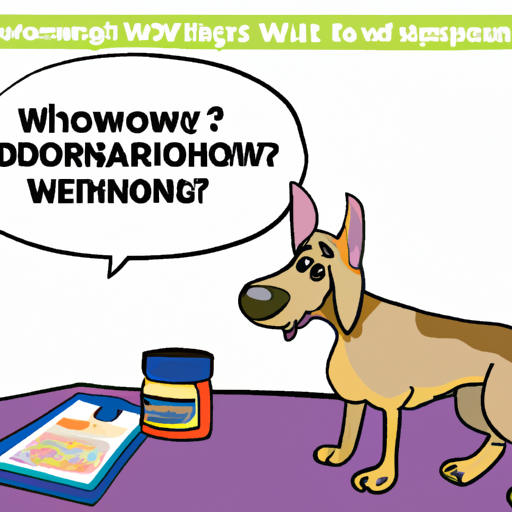“`markdown
What is Deworming for Dogs?
A Necessary Ritual in Dog Care
Deworming, also known as anthelmintic therapy, is a vital part of your dog’s health care routine. It involves administering medication to your dog to rid them of internal parasites – the worms that can reside in their bodies. These worms can cause a range of health issues, from mild discomfort to severe illness, and even death.
Understanding the Threat
Let’s delve into the world of worms. These parasites, though small, can pose a significant threat to your beloved furry friend. They are typically classified into two main categories:
- Roundworms: These include heartworms, hookworms, and whipworms.
- Flatworms: This category includes tapeworms and flukes.
These pesky parasites can infect dogs in various ways, such as:
- Ingesting contaminated soil, water, or feces.
- Consuming infected prey like rodents or birds.
- Via mosquito bites (in the case of heartworms).
Deworming Treatments: A Closer Look
There are numerous deworming treatments available, with different products targeting different types of worms. It’s crucial to consult with your vet to determine the most suitable medication for your dog. Here’s a general breakdown of common deworming treatments:
| Treatment | Worms Treated |
|---|---|
| Heartgard Plus | Heartworms, Roundworms, and Hookworms |
| Drontal Plus | Roundworms, Whipworms, Hookworms, and Tapeworms |
| Interceptor Plus | Heartworms, Roundworms, Whipworms, and Hookworms |
| Panacur C | Roundworms, Hookworms, Whipworms, and Tapeworms |
The Deworming Schedule
The deworming schedule for your dog depends on various factors like age, health status, and lifestyle. Puppies are usually dewormed at two, four, six, and eight weeks of age. After that, your vet may recommend deworming every three months.
Aftercare and Prevention
Post deworming, monitor your dog for any adverse reactions and ensure they are comfortable. Also, maintaining a clean and hygienic environment can help prevent reinfestation.
FAQs
When should I start deworming my puppy?
Puppies should be dewormed at two weeks of age.
How often should adult dogs be dewormed?
Typically, every three months, but your vet may recommend a different schedule based on your dog’s specific needs.
Are there any side effects of deworming?
Side effects are rare but can include vomiting, diarrhea, and loss of appetite. Always consult your vet if you notice anything unusual.
Can I prevent worms in my dog?
While you cannot completely prevent worms, maintaining a clean environment and regular deworming can significantly reduce the risk.
Remember, your dog’s health is in your hands. Regular deworming is a simple yet effective way to ensure they lead a happy and healthy life.
“`



